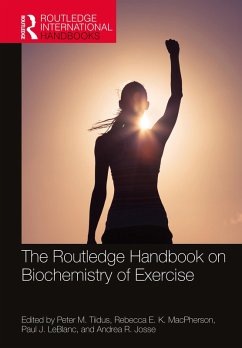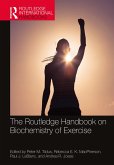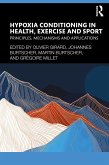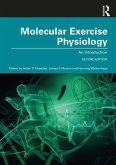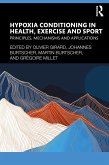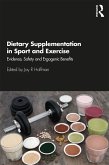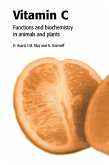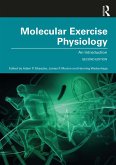The Routledge Handbook on Biochemistry of Exercise (eBook, ePUB)
Redaktion: Tiidus, Peter M.; Josse, Andrea R.; Leblanc, Paul J.; MacPherson, Rebecca E. K.
46,95 €
46,95 €
inkl. MwSt.
Sofort per Download lieferbar

23 °P sammeln
46,95 €
Als Download kaufen

46,95 €
inkl. MwSt.
Sofort per Download lieferbar

23 °P sammeln
Jetzt verschenken
Alle Infos zum eBook verschenken
46,95 €
inkl. MwSt.
Sofort per Download lieferbar
Alle Infos zum eBook verschenken

23 °P sammeln
The Routledge Handbook on Biochemistry of Exercise (eBook, ePUB)
Redaktion: Tiidus, Peter M.; Josse, Andrea R.; Leblanc, Paul J.; MacPherson, Rebecca E. K.
- Format: ePub
- Merkliste
- Auf die Merkliste
- Bewerten Bewerten
- Teilen
- Produkt teilen
- Produkterinnerung
- Produkterinnerung

Bitte loggen Sie sich zunächst in Ihr Kundenkonto ein oder registrieren Sie sich bei
bücher.de, um das eBook-Abo tolino select nutzen zu können.
Hier können Sie sich einloggen
Hier können Sie sich einloggen
Sie sind bereits eingeloggt. Klicken Sie auf 2. tolino select Abo, um fortzufahren.

Bitte loggen Sie sich zunächst in Ihr Kundenkonto ein oder registrieren Sie sich bei bücher.de, um das eBook-Abo tolino select nutzen zu können.
This book emphasizes the current understanding of the underlying metabolic, cellular, genetic and cell signalling mechanisms associated with physical activity, exercise, and athletic performance as they relate to, interact with and regulate cellular and muscular adaptations and effects on human health, nutrition and human performance.
- Geräte: eReader
- mit Kopierschutz
- eBook Hilfe
Andere Kunden interessierten sich auch für
![The Routledge Handbook on Biochemistry of Exercise (eBook, PDF) The Routledge Handbook on Biochemistry of Exercise (eBook, PDF)]() The Routledge Handbook on Biochemistry of Exercise (eBook, PDF)46,95 €
The Routledge Handbook on Biochemistry of Exercise (eBook, PDF)46,95 €![Hypoxia Conditioning in Health, Exercise and Sport (eBook, ePUB) Hypoxia Conditioning in Health, Exercise and Sport (eBook, ePUB)]() Hypoxia Conditioning in Health, Exercise and Sport (eBook, ePUB)42,95 €
Hypoxia Conditioning in Health, Exercise and Sport (eBook, ePUB)42,95 €![Molecular Exercise Physiology (eBook, ePUB) Molecular Exercise Physiology (eBook, ePUB)]() Molecular Exercise Physiology (eBook, ePUB)61,95 €
Molecular Exercise Physiology (eBook, ePUB)61,95 €![Hypoxia Conditioning in Health, Exercise and Sport (eBook, PDF) Hypoxia Conditioning in Health, Exercise and Sport (eBook, PDF)]() Hypoxia Conditioning in Health, Exercise and Sport (eBook, PDF)42,95 €
Hypoxia Conditioning in Health, Exercise and Sport (eBook, PDF)42,95 €![Dietary Supplementation in Sport and Exercise (eBook, PDF) Dietary Supplementation in Sport and Exercise (eBook, PDF)]() Dietary Supplementation in Sport and Exercise (eBook, PDF)39,95 €
Dietary Supplementation in Sport and Exercise (eBook, PDF)39,95 €![Vitamin C (eBook, ePUB) Vitamin C (eBook, ePUB)]() Vitamin C (eBook, ePUB)192,95 €
Vitamin C (eBook, ePUB)192,95 €![Molecular Exercise Physiology (eBook, PDF) Molecular Exercise Physiology (eBook, PDF)]() Molecular Exercise Physiology (eBook, PDF)61,95 €
Molecular Exercise Physiology (eBook, PDF)61,95 €-
-
-
This book emphasizes the current understanding of the underlying metabolic, cellular, genetic and cell signalling mechanisms associated with physical activity, exercise, and athletic performance as they relate to, interact with and regulate cellular and muscular adaptations and effects on human health, nutrition and human performance.
Dieser Download kann aus rechtlichen Gründen nur mit Rechnungsadresse in A, B, BG, CY, CZ, D, DK, EW, E, FIN, F, GR, HR, H, IRL, I, LT, L, LR, M, NL, PL, P, R, S, SLO, SK ausgeliefert werden.
Produktdetails
- Produktdetails
- Verlag: Taylor & Francis eBooks
- Seitenzahl: 584
- Erscheinungstermin: 27. Dezember 2020
- Englisch
- ISBN-13: 9781000284492
- Artikelnr.: 60670193
- Verlag: Taylor & Francis eBooks
- Seitenzahl: 584
- Erscheinungstermin: 27. Dezember 2020
- Englisch
- ISBN-13: 9781000284492
- Artikelnr.: 60670193
- Herstellerkennzeichnung Die Herstellerinformationen sind derzeit nicht verfügbar.
Peter Tiidus is Dean of the Faculty of Applied Health Sciences and a Professor at Brock University, Canada. Rebecca E. K. MacPherson is an Assistant Professor at Brock University, Canada. Paul J. LeBlanc is a Professor in Health Sciences at Brock University, Canada. Andrea R. Josse is an Assistant Professor at York University, Canada.
Section I: Regulation of metabolism and responses to acute exercise
Introduction
1. Whole Body Regulation of Energy Expenditure, Exercise Fuel Selection,
and Dietary Recommendations
2. Energy Provision, Fuel Use and Regulation of Skeletal Muscle Metabolism
During the Exercise Intensity/Duration Continuum
3. Adipose Tissue (adipokinome), Skeletal Muscle (myokinome) and Liver
(hepatokinome) as Endocrine Regulators during Exercise
4. Regulation of Skeletal Muscle Reactive Oxygen Species During Exercise
5. Biochemical contributors to exercise fatigue
6. Mechanotransduction Mechanisms of Hypertrophy and Performance with
Resistance Exercise
7. Responses to muscular exercise, Heat Shock Proteins as regulators of
inflammation and mitochondrial quality control
8. Signaling pathways in regulation of cellular responses to exercise
Section II: Exercise Biochemistry, Chronic Training, and Athletic
Performance
Introduction
9. Exercise-Induced Mitochondrial Biogenesis: Molecular Regulation, Impact
of Training, and Influence on Exercise Performance
10. Resistance Exercise Training and the Regulation of Muscle Protein
Synthesis
11. Cellular Adaptations to High-Intensity and Sprint Interval Training
12. Regulation of Muscle Satellite Cell Activation and Cycles Consequent to
Various Forms of Training
13. Biochemical and Metabolic Limitations to Athletic Performance
14. Genetic Limitations to Athletic Performance
15. The Role of Epigenetics in Skeletal Muscle Adaptations to Exercise and
Exercise Training
16. Statistical Considerations and Biological Mechanisms Underlying
Individual Differences in Adaptations to Exercise Training
17. Effects of Hypoxia/Blood Flow Restriction on Cellular Adaptations to
Training
Section III: Exercise Biochemistry/Nutrition Nexus in Sport and Physical
Activity
Introduction
18. Exercise and Dietary Influences on the Regulation of Energy Balance and
Implications for Body Weight Control
19. Dietary Manipulation for Optimizing Endurance Training Adaptations and
Performance: Carbohydrate vs. Fat
20. Dietary Influence on Muscle Protein Synthesis and Hypertrophy
21. Micronutrients and Nutraceuticals: Effects on Exercise Performance
22. Biochemistry of Buffering Capacity and Ingestion of Buffers in Exercise
and Athletic Performance
23. Creatine augmentation for muscle and bone responses to exercise
24. Biochemistry of Caffeine's Influence on Exercise Performance
25. Nutrigenomics for Sport and Exercise Performance
Section IV: Exercise Biochemistry Relative to Health Through the Lifespan
Introduction
26. Mitochondrial Dysfunction in Chronic Disease
27. Exercise training, mitochondrial adaptations and aging
28. Biochemistry of Exercise Effects in Type II Diabetes
29. Biochemistry of Exercise Training and Mitigation of Cardiovascular
Disease
30. Biochemistry of Exercise Training and Type 1 Diabetes
31. Biochemistry of Exercise Training: Mitigation of Cancers
32. Biochemistry of Exercise Training; Effects on Bone
33. Metabolic Effects of Exercise on Childhood Obesity
Introduction
1. Whole Body Regulation of Energy Expenditure, Exercise Fuel Selection,
and Dietary Recommendations
2. Energy Provision, Fuel Use and Regulation of Skeletal Muscle Metabolism
During the Exercise Intensity/Duration Continuum
3. Adipose Tissue (adipokinome), Skeletal Muscle (myokinome) and Liver
(hepatokinome) as Endocrine Regulators during Exercise
4. Regulation of Skeletal Muscle Reactive Oxygen Species During Exercise
5. Biochemical contributors to exercise fatigue
6. Mechanotransduction Mechanisms of Hypertrophy and Performance with
Resistance Exercise
7. Responses to muscular exercise, Heat Shock Proteins as regulators of
inflammation and mitochondrial quality control
8. Signaling pathways in regulation of cellular responses to exercise
Section II: Exercise Biochemistry, Chronic Training, and Athletic
Performance
Introduction
9. Exercise-Induced Mitochondrial Biogenesis: Molecular Regulation, Impact
of Training, and Influence on Exercise Performance
10. Resistance Exercise Training and the Regulation of Muscle Protein
Synthesis
11. Cellular Adaptations to High-Intensity and Sprint Interval Training
12. Regulation of Muscle Satellite Cell Activation and Cycles Consequent to
Various Forms of Training
13. Biochemical and Metabolic Limitations to Athletic Performance
14. Genetic Limitations to Athletic Performance
15. The Role of Epigenetics in Skeletal Muscle Adaptations to Exercise and
Exercise Training
16. Statistical Considerations and Biological Mechanisms Underlying
Individual Differences in Adaptations to Exercise Training
17. Effects of Hypoxia/Blood Flow Restriction on Cellular Adaptations to
Training
Section III: Exercise Biochemistry/Nutrition Nexus in Sport and Physical
Activity
Introduction
18. Exercise and Dietary Influences on the Regulation of Energy Balance and
Implications for Body Weight Control
19. Dietary Manipulation for Optimizing Endurance Training Adaptations and
Performance: Carbohydrate vs. Fat
20. Dietary Influence on Muscle Protein Synthesis and Hypertrophy
21. Micronutrients and Nutraceuticals: Effects on Exercise Performance
22. Biochemistry of Buffering Capacity and Ingestion of Buffers in Exercise
and Athletic Performance
23. Creatine augmentation for muscle and bone responses to exercise
24. Biochemistry of Caffeine's Influence on Exercise Performance
25. Nutrigenomics for Sport and Exercise Performance
Section IV: Exercise Biochemistry Relative to Health Through the Lifespan
Introduction
26. Mitochondrial Dysfunction in Chronic Disease
27. Exercise training, mitochondrial adaptations and aging
28. Biochemistry of Exercise Effects in Type II Diabetes
29. Biochemistry of Exercise Training and Mitigation of Cardiovascular
Disease
30. Biochemistry of Exercise Training and Type 1 Diabetes
31. Biochemistry of Exercise Training: Mitigation of Cancers
32. Biochemistry of Exercise Training; Effects on Bone
33. Metabolic Effects of Exercise on Childhood Obesity
Section I: Regulation of metabolism and responses to acute exercise
Introduction
1. Whole Body Regulation of Energy Expenditure, Exercise Fuel Selection,
and Dietary Recommendations
2. Energy Provision, Fuel Use and Regulation of Skeletal Muscle Metabolism
During the Exercise Intensity/Duration Continuum
3. Adipose Tissue (adipokinome), Skeletal Muscle (myokinome) and Liver
(hepatokinome) as Endocrine Regulators during Exercise
4. Regulation of Skeletal Muscle Reactive Oxygen Species During Exercise
5. Biochemical contributors to exercise fatigue
6. Mechanotransduction Mechanisms of Hypertrophy and Performance with
Resistance Exercise
7. Responses to muscular exercise, Heat Shock Proteins as regulators of
inflammation and mitochondrial quality control
8. Signaling pathways in regulation of cellular responses to exercise
Section II: Exercise Biochemistry, Chronic Training, and Athletic
Performance
Introduction
9. Exercise-Induced Mitochondrial Biogenesis: Molecular Regulation, Impact
of Training, and Influence on Exercise Performance
10. Resistance Exercise Training and the Regulation of Muscle Protein
Synthesis
11. Cellular Adaptations to High-Intensity and Sprint Interval Training
12. Regulation of Muscle Satellite Cell Activation and Cycles Consequent to
Various Forms of Training
13. Biochemical and Metabolic Limitations to Athletic Performance
14. Genetic Limitations to Athletic Performance
15. The Role of Epigenetics in Skeletal Muscle Adaptations to Exercise and
Exercise Training
16. Statistical Considerations and Biological Mechanisms Underlying
Individual Differences in Adaptations to Exercise Training
17. Effects of Hypoxia/Blood Flow Restriction on Cellular Adaptations to
Training
Section III: Exercise Biochemistry/Nutrition Nexus in Sport and Physical
Activity
Introduction
18. Exercise and Dietary Influences on the Regulation of Energy Balance and
Implications for Body Weight Control
19. Dietary Manipulation for Optimizing Endurance Training Adaptations and
Performance: Carbohydrate vs. Fat
20. Dietary Influence on Muscle Protein Synthesis and Hypertrophy
21. Micronutrients and Nutraceuticals: Effects on Exercise Performance
22. Biochemistry of Buffering Capacity and Ingestion of Buffers in Exercise
and Athletic Performance
23. Creatine augmentation for muscle and bone responses to exercise
24. Biochemistry of Caffeine's Influence on Exercise Performance
25. Nutrigenomics for Sport and Exercise Performance
Section IV: Exercise Biochemistry Relative to Health Through the Lifespan
Introduction
26. Mitochondrial Dysfunction in Chronic Disease
27. Exercise training, mitochondrial adaptations and aging
28. Biochemistry of Exercise Effects in Type II Diabetes
29. Biochemistry of Exercise Training and Mitigation of Cardiovascular
Disease
30. Biochemistry of Exercise Training and Type 1 Diabetes
31. Biochemistry of Exercise Training: Mitigation of Cancers
32. Biochemistry of Exercise Training; Effects on Bone
33. Metabolic Effects of Exercise on Childhood Obesity
Introduction
1. Whole Body Regulation of Energy Expenditure, Exercise Fuel Selection,
and Dietary Recommendations
2. Energy Provision, Fuel Use and Regulation of Skeletal Muscle Metabolism
During the Exercise Intensity/Duration Continuum
3. Adipose Tissue (adipokinome), Skeletal Muscle (myokinome) and Liver
(hepatokinome) as Endocrine Regulators during Exercise
4. Regulation of Skeletal Muscle Reactive Oxygen Species During Exercise
5. Biochemical contributors to exercise fatigue
6. Mechanotransduction Mechanisms of Hypertrophy and Performance with
Resistance Exercise
7. Responses to muscular exercise, Heat Shock Proteins as regulators of
inflammation and mitochondrial quality control
8. Signaling pathways in regulation of cellular responses to exercise
Section II: Exercise Biochemistry, Chronic Training, and Athletic
Performance
Introduction
9. Exercise-Induced Mitochondrial Biogenesis: Molecular Regulation, Impact
of Training, and Influence on Exercise Performance
10. Resistance Exercise Training and the Regulation of Muscle Protein
Synthesis
11. Cellular Adaptations to High-Intensity and Sprint Interval Training
12. Regulation of Muscle Satellite Cell Activation and Cycles Consequent to
Various Forms of Training
13. Biochemical and Metabolic Limitations to Athletic Performance
14. Genetic Limitations to Athletic Performance
15. The Role of Epigenetics in Skeletal Muscle Adaptations to Exercise and
Exercise Training
16. Statistical Considerations and Biological Mechanisms Underlying
Individual Differences in Adaptations to Exercise Training
17. Effects of Hypoxia/Blood Flow Restriction on Cellular Adaptations to
Training
Section III: Exercise Biochemistry/Nutrition Nexus in Sport and Physical
Activity
Introduction
18. Exercise and Dietary Influences on the Regulation of Energy Balance and
Implications for Body Weight Control
19. Dietary Manipulation for Optimizing Endurance Training Adaptations and
Performance: Carbohydrate vs. Fat
20. Dietary Influence on Muscle Protein Synthesis and Hypertrophy
21. Micronutrients and Nutraceuticals: Effects on Exercise Performance
22. Biochemistry of Buffering Capacity and Ingestion of Buffers in Exercise
and Athletic Performance
23. Creatine augmentation for muscle and bone responses to exercise
24. Biochemistry of Caffeine's Influence on Exercise Performance
25. Nutrigenomics for Sport and Exercise Performance
Section IV: Exercise Biochemistry Relative to Health Through the Lifespan
Introduction
26. Mitochondrial Dysfunction in Chronic Disease
27. Exercise training, mitochondrial adaptations and aging
28. Biochemistry of Exercise Effects in Type II Diabetes
29. Biochemistry of Exercise Training and Mitigation of Cardiovascular
Disease
30. Biochemistry of Exercise Training and Type 1 Diabetes
31. Biochemistry of Exercise Training: Mitigation of Cancers
32. Biochemistry of Exercise Training; Effects on Bone
33. Metabolic Effects of Exercise on Childhood Obesity
